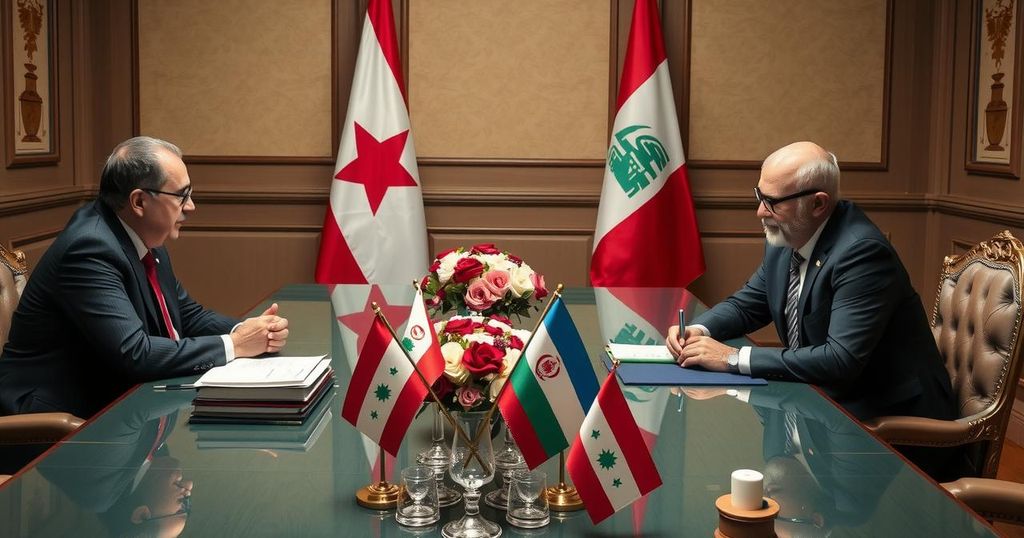Syria’s new leader, Ahmad Sharaa, aims to mend ties with Lebanon, moving past negative relations from the Assad era. In a conference with Lebanese Prime Minister Najib Mikati, Sharaa emphasized long-term strategic cooperation, following discussions on border management and the status of missing Lebanese persons. The dialogue marks a significant shift towards a more respectful and sovereign partnership between the two nations.
In a significant diplomatic overture, Syria’s newly appointed leader, Ahmad Sharaa, called upon Lebanon to move beyond the historically strained relations that arose during the Assad family’s governance. During a joint press conference with Lebanese caretaker Prime Minister Najib Mikati in Damascus, Sharaa expressed his commitment to resolving outstanding issues and fostering long-term strategic ties based on mutual respect and sovereignty. He acknowledged the “damaged” relations stemming from the preceding regime and emphasized the need for a positive relationship that prioritizes the shared interests of both nations.
The history of Syrian intervention in Lebanon has been fraught with complexities since the Syrian Army’s entry in 1976. This intervention was originally aimed at quelling Lebanon’s civil war but evolved into a period of political control, culminating in a Syrian military presence lasting nearly three decades. The withdrawal of the Syrian Army was prompted by the assassination of former Lebanese Prime Minister Rafik Hariri in 2005, after which Syria’s influence began to diminish.
In their discussions, Sharaa and Mikati addressed key topics including the mutual demarcation of borders and the control of illegal crossings used for smuggling. Prime Minister Mikati underscored the urgency of establishing comprehensive border management to enhance security for both nations. This dialogue marks a pivotal moment, considering the turbulent history shared between Syria and Lebanon and the need for improved cooperation moving forward.
Moreover, Sharaa pledged that the new Syrian government intends to treat all Lebanese political factions equally, with a determination to resolve long-standing disputes through dialogue. They also touched upon the sensitive issue of Lebanese citizens who vanished under Syrian custody during the occupation, with Mikati committing to supply the new Syrian administration with an updated list of these individuals to address their fates directly.
The relationship between Syria and Lebanon has been historically complex, often dominated by Syrian political and military influence in Lebanese affairs. Beginning with the Syrian military’s intervention in Lebanon to quell civil conflict in 1976, Syria maintained significant control until a controversial withdrawal following domestic and international pressure. The aftermath of the Syrian civil war and the political landscape in both countries necessitate a reevaluation of their bilateral relations. The current leadership in Syria seeks to redefine this relationship, aiming to establish cooperative measures that acknowledge the sovereignty of both nations.
In conclusion, Ahmad Sharaa’s statements signal a potential shift in the dynamics of Syrian-Lebanese relations, emphasizing cooperation and mutual respect. The commitment to long-term strategic ties, border security, and addressing the sensitive issue of missing Lebanese citizens marks a turning point from the historically contentious legacy of past administrations. The future of Syria-Lebanon relations hinges on effective dialogue and a shared vision for stability and mutual benefit.
Original Source: www.upi.com







